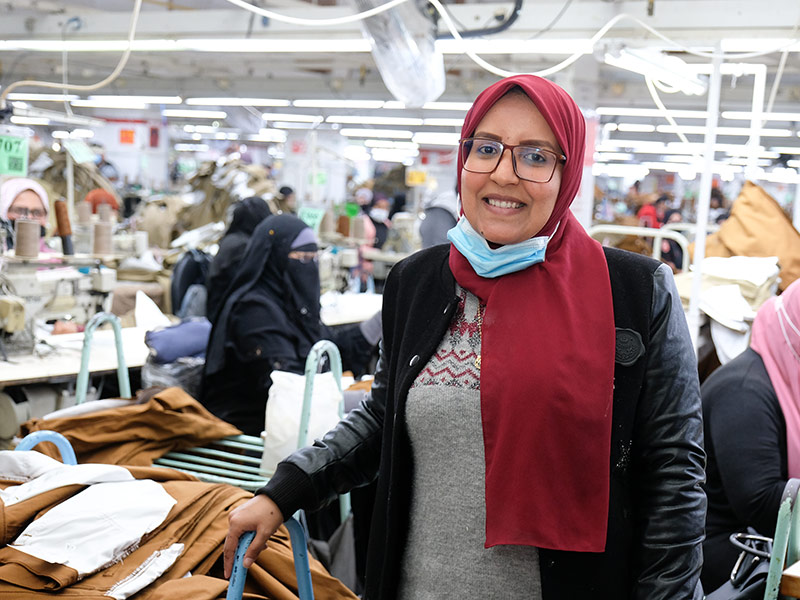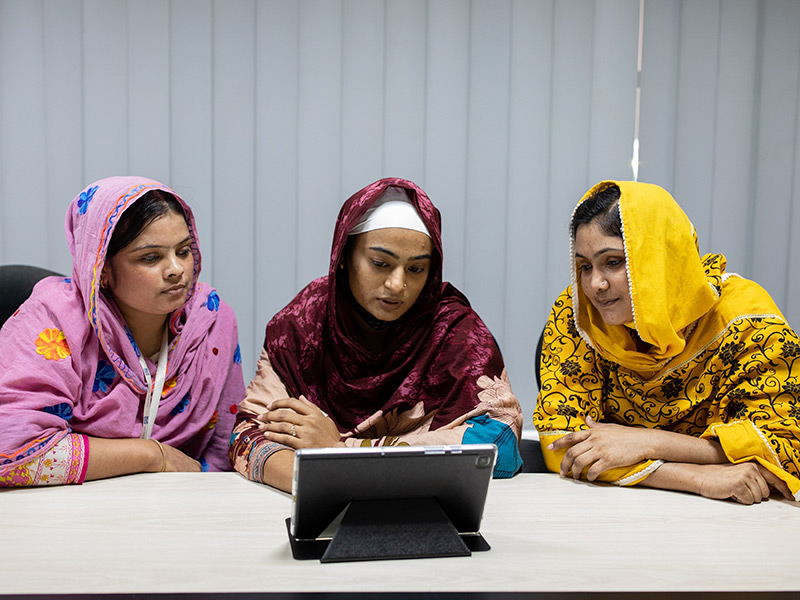
Authors
-
Aditi Mohapatra
Former Managing Director, BSR
-
Annelise Thim
Former Associate Director, BSR
As we enter the 2020s, BSR is eager to set the stage for how we can deliver gender equality in this decisive decade. The goalposts have been set: the Sustainable Development Goals state that we shouldn’t aim for global gender equality by 2030—we need to achieve it.
The roadmap is also in place: the Women’s Empowerment Principles lay out a series of steps that companies can work toward to advance gender equality across their operations. At the same time, data from the World Economic Forum’s Global Gender Gap report demonstrate that women are actually falling further behind in terms of economic parity, making us all too aware of just how far we still have to go.
At BSR, we are committed to working with our members to chart out a path that gets us to equality quickly. Here is what we think needs to happen to achieve gender equality in this decisive decade:
1. Companies need to dial up their ambition.
Nearly every major company has committed to increasing the number of women in leadership or published a statement on the importance of diverse and inclusive workplaces. Until now, many companies needed to be convinced of the business case for equality or on business’ role and opportunity to influence change. For the next decade, we need greater ambition—a shift away from broad corporate commitments and toward specific goals and metrics that chart a clear and measured path to equality. Equality in leadership, in pay, in safe and respectful workplaces, in the supply chain, and beyond.
There are some outstanding examples of this ambition in practice: Salesforce has gone beyond tracking and reporting its annual gender pay gap and is now making the necessary pay adjustments to close the gap, committing USD$10.3 million over the past four years. Cisco and Uber have taken the bold step of sharing data on sexual harassment complaints and occurrences. While not an easy step to take, this move underscores the companies’ commitment and establishes additional accountability to ensure employee and client safety.
Still, we need even more companies across all sectors to advance women to the highest levels of the organization. The percentage of women in global management roles has unfortunately steadied around 25 percent globally, and new thinking, curiosity, and creative approaches will be necessary to accelerate towards equitable leadership. For example, women are severely underrepresented in “line functions” and STEM roles. Given that these positions are often the pipeline to management and leadership opportunities, there is a need to put a particular focus on increasing the representation of women in these high-quality, high-earning roles.
2. Companies need to partner and work collaboratively together to scale efforts.
Since the Beijing Platform for Action 25 years ago, we have not seen a global convening on its scale or magnitude focused on women’s rights. This year, however, the Generation Equality Forum—a gathering of governments, civil society organizations, and companies—will seek to set the stage for ambitious global action on women’s rights. It will provide an important entry point for companies to learn, share, and partner to achieve the scale and partnerships necessary to accelerate progress. Multi-stakeholder Action Coalitions will launch targeted actions for 2020-2025 to deliver tangible results for women and girls. In addition, all actors, including businesses, are invited to make their own commitments to advancing women’s empowerment.
Of course, many companies are not waiting for this moment to get started. Partnerships such as Business Action for Women, Paternity Leave Taskforces, Unstereotype Alliance, Target Gender Equality, Deliver for Good Business Ally Network, and others are highlighting what is possible when businesses work together to remove barriers for gender equality.
3. Companies need to be mindful of the new climate for business.
The conversation on gender equality needs to take place in the context of the changes already taking place in the workplace, in communities, and for issues like climate change globally. The changing nature of work, from automation to entirely new business models, will have a differentiated impact on women. Businesses have an opportunity to be intentional and deliberate about how their approach to achieving gender equality intersectswith disruptions to their workplace and workforce over the next decade as these changes accelerate. By designing inclusive future of work strategies, companies can address both the systemic challenges faced by women at work as well as the new challenges presented by new work structures and gaps in social protections.
A new policy landscape sets a high bar for companies to protect and promote women throughout their operations—for example, the ILO Convention on Violence and Harassment sets out an international standard and guidance on addressing this critical issue in the workplace. But again, moving from commitment to action is paramount, beginning with ratification of the Convention at the country level and then with individual companies revising policies, risk assessments, and grievance mechanisms to ensure they are aligning with international best practice. In some regions, critical protections for women related to sexual and reproductive health are being rolled back. As the business case for how these issues impact workplaces becomes clearer, more companies are being asked to address these changes, engage in reproductive health policy, and understand the implications for their employees.
Finally, all decisions over the next decade will need to be made in the context of our warming climate. While climate change impacts everyone, marginalized groups, including women, are particularly impacted due to socioeconomic barriers, which include having a limited voice in decision-making and limited access to critical resources. Women and the role they play in communities—both on the front lines of climate impacts, and also in designing solutions—should be front of mind for companies. Research shows that more women in decision-making and leadership roles has a positive impact on sustainable natural resource management and climate change solutions. These two areas, traditionally managed very separately, should see a greater convergence as the linkages between gender equality and climate change are further understood.
Most of the issues facing companies and women are not new, but the urgency and growing momentum for change is unparalleled. At BSR, we believe that every company has a role to play in achieving gender equality both individually and through collective action. To support this, BSR has developed a suite of tools to help companies address many of these issues, from updating policies aligned with the ILO Convention on Violence and Harassment to identifying synergies between their approaches to climate and women’s empowerment for greater impact. For the decisive decade ahead, companies can make progress on gender equality by moving from commitments to action to create an equitable workplace that works for everyone. Please reach out to BSR's women's empowerment team for more information on steps to take.
BSR’s latest sustainability insights and events straight to your inbox.
Topics
Let’s talk about how BSR can help you to transform your business and achieve your sustainability goals.







